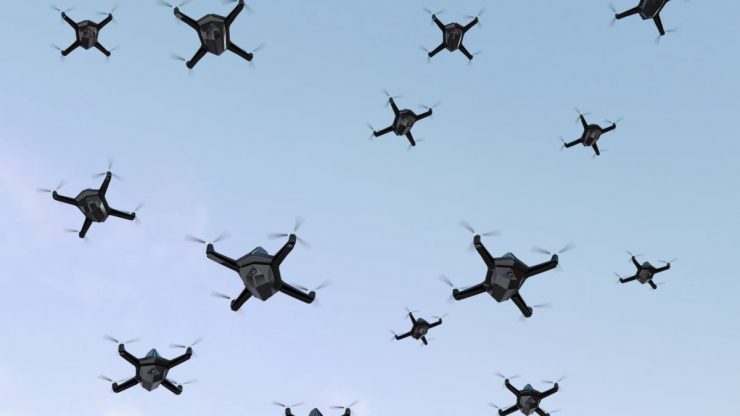The UK Confidential Human Factors Incident Reporting Programme (CHIRP) has extended its safety reporting system to include drone operations. The CHIRP October newsletter announced the creation of a drone safety reporting programme to provide a reporting channel for drone remote pilots similar to that provided for manned aviation. It said drones should be treated as just another sector of aviation; safety/hazard reporting processes should mirror those used in manned aviation as closely as possible to foster a cooperative ethos of ‘all on the same team’. Just like commercial manned operations, remote pilots and other staff will be expected to report safety issues to their company; the company will forward reportable issues to the CAA. Individuals who are unwilling to report to their employer may wish to report to CHIRP.
Remote pilots flying drones for leisure may wish to report safety issues to seek reassurance or guidance about their actions, for cathartic reasons following an occurrence and/or for altruistic reasons wishing to share an experience.
For commercial drone operations CHIRP’s role should be the same as currently performed for manned commercial operations: to provide a safety net for reporters unwilling to use formal reporting systems. Reporters will be encouraged to use company or CAA reporting processes as appropriate. For those unwilling to report openly, CHIRP will forward disidentified reports to the organisation best able to investigate/address the reported issue.
Remote pilots flying drones for recreational or leisure purposes may have no background in, or knowledge of aviation, airmanship or reporting processes. CHIRP’s role will be to guide and educate reporters to become ‘air-minded’. Reporters will be encouraged to think of themselves as part of the national aviation community in which the processes, permissions and responsibilities are coherent throughout. Members of the public wishing to report drones as a nuisance, concern, invasion of privacy etc should contact the police. It is not intended that CHIRP will act as a conduit for such reporting.
Drone reports will initially be assessed by the CHIRP General Aviation Advisory Board. Should the volume of reports require it, CHIRP may introduce a Drone and UAS Advisory Board with a dedicated Drone and UAS FEEDBACK newsletter. A bespoke drone and UAS reporting form is available on the CHIRP website and the agency reports receipt of its first report.
CHIRP provides an independent confidential (not anonymous) reporting system for all individuals employed in or associated with aviation and maritime industries. The platform has been in operation since 1982 and welcomes safety-related reports from flight crew, air traffic control officers, licensed aircraft maintenance engineers, cabin crew and the General Aviation community and people in the international maritime sector, including the shipping industry, fishing industry and leisure users.
For more information visit:




